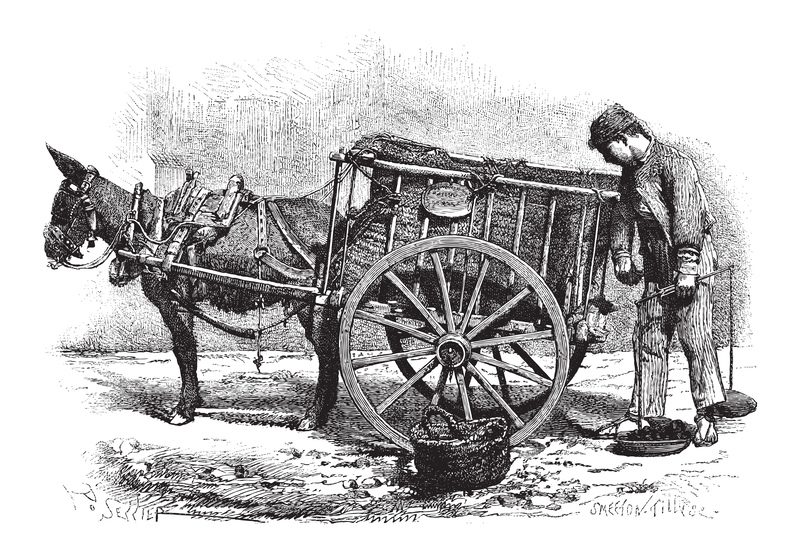From Brew to Blooms: Transforming Coffee Grounds into Nutrient-Rich Soil
Posted on 14/05/2024
Coffee is one of the most popular beverages in the world, with millions of cups consumed each day. But what happens to all those leftover coffee grounds? Many people simply throw them away, not realizing the potential they have beyond just giving us a caffeine boost. In fact, coffee grounds can be transformed into a nutrient-rich soil that can benefit both our gardens and the environment. In this article, we will explore the process of turning coffee grounds into compost and the benefits it brings.
What is Composting?
Composting is the natural process of breaking down organic materials into a nutrient-rich soil known as compost. This process happens in nature all the time, but it can also be done intentionally by humans. Compost serves as a natural fertilizer for plants, providing essential nutrients and improving soil quality. It also reduces waste and helps promote sustainability by recycling organic materials.

Transforming Coffee Grounds into Compost
To turn coffee grounds into compost, start by collecting your used coffee grounds instead of throwing them away. You can store them in a container or directly add them to your compost bin. Next, mix the coffee grounds with other compostable materials such as fruit and vegetable scraps, eggshells, grass clippings, and dry leaves. This mixture will provide a balanced amount of carbon and nitrogen, which are essential elements for successful composting.
It is important to note that coffee grounds should only make up about 20% of your overall compost mixture. Using too much can cause an imbalance in nutrients and slow down the composting process. Additionally, avoid using coffee grounds from flavored or instant coffees as they may contain additives that can harm your plants.
The Benefits of Coffee Compost
One of the main benefits of using coffee compost is its high concentration of nitrogen. Nitrogen is one of the primary nutrients needed for plant growth, and coffee grounds have a higher nitrogen content compared to other organic materials. Additionally, coffee grounds also contain phosphorus, potassium, and magnesium, which are essential for healthy plant growth.
Coffee compost is also an excellent way to improve the quality of your soil. It helps retain moisture, improves drainage, and increases the overall fertility of the soil. This creates a healthier environment for plants to grow and can lead to larger, more vibrant blooms in your garden.
Moreover, using coffee compost helps reduce waste and promotes sustainability. The average person consumes around two cups of coffee per day, which adds up to a significant amount of used coffee grounds thrown away each year. By composting these grounds instead of sending them to landfills, we can reduce the amount of waste we produce and contribute to a healthier planet.
Pros and Cons of Using Coffee Compost
Pros:
- Provides essential nutrients for plants
- Improves soil quality
- Helps reduce waste
- Promotes sustainability
Cons:
- Can be acidic and may not be suitable for all plants
- May contain additives from flavored or instant coffees that can harm plants
- Can attract pests if not properly managed
Tips for Using Coffee Compost
To get the most out of your coffee compost, here are some tips to keep in mind:
1. Use in moderation: As mentioned before, coffee grounds should only make up about 20% of your compost mixture. Too much can create an imbalance in nutrients.
2. Balance with other materials: Mix coffee grounds with other compostable materials such as fruit and vegetable scraps to create a balanced mixture.
3. Avoid using with certain plants: Some plants prefer neutral pH levels and may not do well with coffee compost. Avoid using it on acid-loving plants like blueberries or azaleas.
4. Keep pests away: To prevent pests from being attracted to your coffee compost, mix it into the top layer of soil or cover it with mulch.
5. Monitor pH levels: If you notice your plants are not thriving, test the pH level of your soil. Coffee grounds can be acidic, so adding lime or wood ash can help neutralize it.

Takeaways
Coffee grounds may have a surprising second life as they can be transformed into nutrient-rich soil through composting. This process not only benefits our gardens but also helps reduce waste and promote sustainability. However, it is important to use coffee compost in moderation and balance it with other materials to avoid any potential issues.
Conclusion
Next time you brew your morning cup of coffee, don't throw away those used grounds. Instead, collect them and add them to your compost bin for a more sustainable and eco-friendly way to dispose of them. With the right balance and usage, coffee compost can provide numerous benefits for both your plants and the environment. So why not give it a try and see the transformation from brew to blooms in your own garden?
Latest Posts
Enhance Business Efficiency with Waste Collection

